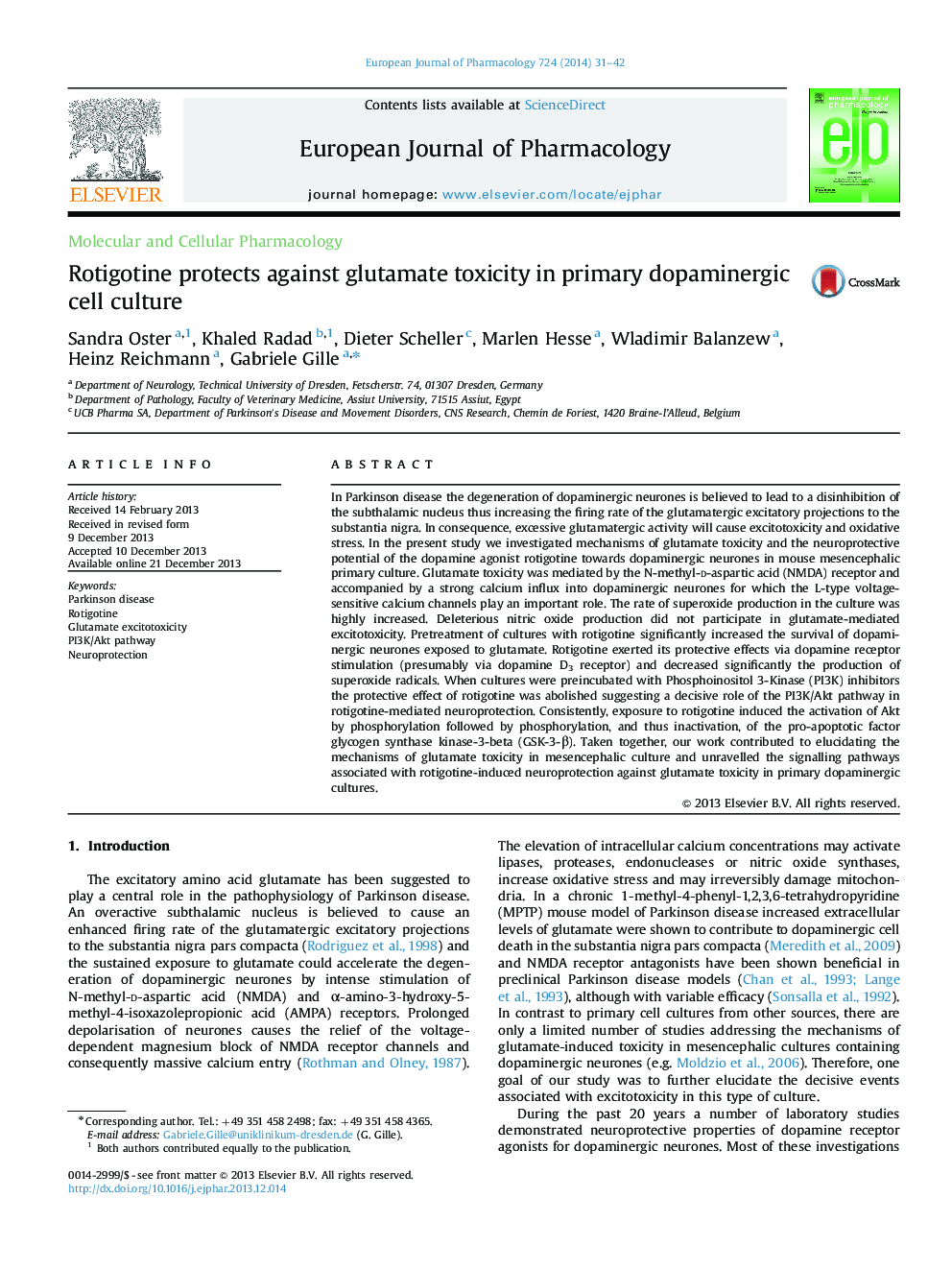| Article ID | Journal | Published Year | Pages | File Type |
|---|---|---|---|---|
| 2531807 | European Journal of Pharmacology | 2014 | 12 Pages |
In Parkinson disease the degeneration of dopaminergic neurones is believed to lead to a disinhibition of the subthalamic nucleus thus increasing the firing rate of the glutamatergic excitatory projections to the substantia nigra. In consequence, excessive glutamatergic activity will cause excitotoxicity and oxidative stress. In the present study we investigated mechanisms of glutamate toxicity and the neuroprotective potential of the dopamine agonist rotigotine towards dopaminergic neurones in mouse mesencephalic primary culture. Glutamate toxicity was mediated by the N-methyl-d-aspartic acid (NMDA) receptor and accompanied by a strong calcium influx into dopaminergic neurones for which the L-type voltage-sensitive calcium channels play an important role. The rate of superoxide production in the culture was highly increased. Deleterious nitric oxide production did not participate in glutamate-mediated excitotoxicity. Pretreatment of cultures with rotigotine significantly increased the survival of dopaminergic neurones exposed to glutamate. Rotigotine exerted its protective effects via dopamine receptor stimulation (presumably via dopamine D3 receptor) and decreased significantly the production of superoxide radicals. When cultures were preincubated with Phosphoinositol 3-Kinase (PI3K) inhibitors the protective effect of rotigotine was abolished suggesting a decisive role of the PI3K/Akt pathway in rotigotine-mediated neuroprotection. Consistently, exposure to rotigotine induced the activation of Akt by phosphorylation followed by phosphorylation, and thus inactivation, of the pro-apoptotic factor glycogen synthase kinase-3-beta (GSK-3-β). Taken together, our work contributed to elucidating the mechanisms of glutamate toxicity in mesencephalic culture and unravelled the signalling pathways associated with rotigotine-induced neuroprotection against glutamate toxicity in primary dopaminergic cultures.
